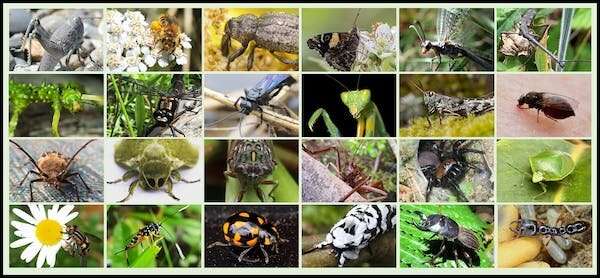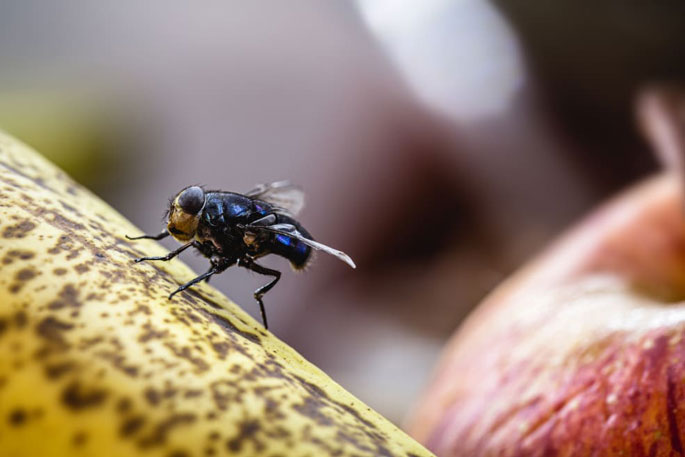The evolutionary debate has been raging for 160 years.
(CN) – Several winged insects on the small islands around Antarctica are losing their ability to fly – an evolutionary event that Charles Darwin predicted 150 years ago.
In the study, published Tuesday in the journal Proceedings of the Royal Society B, lead author and PhD student Rachel Leihy of Monash University School of Biological Sciences examined this loss of flight phenomenon in conjunction with Darwin’s findings and discovered significant answers.
The study looked at insects from the small sub-Antarctic islands between Antarctica and nearby continents like Australia, where almost all insects have chosen to walk – even the most notorious fliers like flies and moths.
Scientists have observed the loss of flight in insects for years, raising questions about why evolution would favor the loss of a trait that contributes so much to survival. In the past, loss of flight has been attributed to molecular evolution, in which, due to various external factors, an animal’s energy was instead diverted to reproductive or other functions. However, there is still a long-running debate in the scientific community about the reasons for this.
Leihy looked at Darwin, the famous naturalist and ecologist responsible for the theory of natural selection and evolution who had some thoughts on inability to fly in his day. Darwin encountered flightless birds during his time in the Galapagos Islands and after observing them, the completed flight simply no longer matched the birds.
When he discovered the flightless cormorant, for example, he found that although their wings were no longer flightworthy, they were better able to maneuver in the water to catch fish than flying cormorants. They found more success on land and water than in the air and, over time, adapted to those needs. The same would be true of insects, which had more success on foot than by air, but he had some challengers on the idea.
For their study, Leihy and her team were interested in why this might happen on these specific sub-Antarctic islands, and suspected weather conditions might play a large role in this evolutionary adaptation. These islands are in the “roaring 40s” and “furious 50s” latitudes notorious for their extreme and almost constant winds.
“Of course, Charles Darwin knew about this wing loss habit of island insects,” Leihy said. “He and the famous botanist Joseph Hooker had a major argument about why this was happening. Darwin’s position was deceptively simple. When you fly you will be blown into the sea. Those who stay on land to produce the next generation are the ones who fly the least, and eventually evolution does the rest. Voilà. “
The authors note that many scientists followed Hooker’s example when they doubted Darwin’s idea and sparked debate among biologists.
“If Darwin really got it wrong, the wind would in no way explain why so many insects have lost their ability to fly on these islands,” Leihy said.
To test their hypothesis, Leihy and the team at Monash University in Australia used a newly developed database with extensive data on insects from Arctic and sub-Antarctic islands. They considered every possible explanation for the insects’ loss of flight, including Darwin’s theory of wind discouragement.
After analyzing all the routes, they concluded that Darwin had rightly predicted that windy environments would discourage light fliers from using their wings, as there is a risk of them being blown away.
The more wind there is, the more energy insects have to muster to control their flight. By the rules of natural selection, insects that chose not to fly would do better on land, and in time their wings would lose the muscle needed to fly in the air.
This is backed up by previous knowledge of flightless creatures in areas where the cost of air outweighs the benefits, such as: B. Extreme cold or strong wind. Flies and other airborne insects can often lose their wings in regions with these conditions.
“It is remarkable that after 160 years, Darwin’s ideas continue to provide insights into ecology,” said Leihy.
Leihy’s colleague Steven Chown, a professor at Monash University, believes Antarctica is an exceptional laboratory for solving some of the world’s most persistent puzzles and testing some of its most important ideas.
Like this:
Loading…








